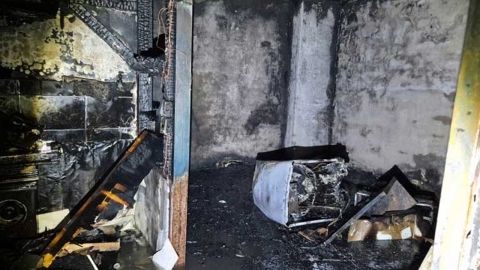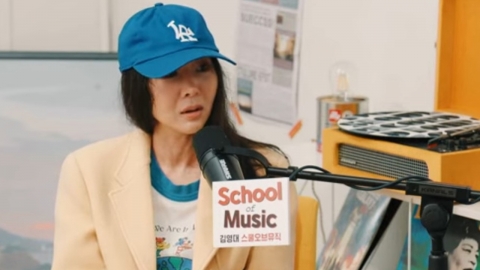■ Starring: Professor Seok Byung-hoon, Department of Economics at Ewha Womans University
* The text below may differ from the actual broadcast content, so please check the broadcast for more accurate information. Please specify [YTN News START] when quoting.
[Anchor]
We deliver the economic news quickly and kindly. Start Economy, today with Seok Byung-hoon, a professor of economics at Ewha Womans University. It's the week after the U.S. presidential election. With six days left, it is difficult to predict who will be. We're going to talk about the presidential election and the economy, but you can expect that no matter who becomes it, you'll put your country and the United States first, right?
[Seok Byung Hoon]
That's right. If we see the common denominator of the pledges of former President Trump and Vice President Kamala Harris now, the common denominator will be to strengthen protectionism to revive the U.S. economy. This is a reflection of the interests of the American people in the Rust Belt region, which has the casting boat called the biggest battleground in this presidential election. In the case of former President Trump, he made a pledge to raise U.S. tariffs, which are currently only 3% on average, to tariffs up to 20% and impose tariffs up to 60% on Chinese imports. Vice President Harris also expresses her willingness to revise the trade agreement between the U.S., Mexico and Canada, which China used to bypass U.S. tariff barriers to export, so protectionism will be strengthened no matter who wins.
[Anchor]
As mentioned after the U.S. presidential election, the world seems to be nervous and preparing for it as the protectionist stance is strengthened. Depending on the results of the U.S. presidential election, we will also look at the outlook for economic trends, but U.S. prices, which once soared to 9%, are slowing to 2%. However, there is a prospect that the pattern could change depending on the results of the U.S. presidential election, what do you think?
[Seok Byung Hoon]
I think there is a high possibility that the pattern will change. In particular, since the probability of former President Trump's victory in the presidential election is increasing recently, there is an aspect that has already been reflected in the market. However, if Vice President Harris wins against expectations, there is a possibility that what is reflected in the market will be adjusted. At this point, however, there are many reasons why prices can soar again, and the first is that both former President Trump and Vice President Harris are promising tax cuts or increased fiscal spending. In the case of former President Trump, he said he would extend the 2017 tax cut, which is due to sunset next year, and announced that he would cut corporate taxes further. And then Vice President Harris will promote housing and expand child tax credits, and these tax cuts and increased government spending will inevitably increase the U.S. fiscal deficit and increase government debt. Then, the liquidity in the market will be released, so prices will have no choice but to increase. Moreover, if former President Trump wins as he currently predicts in the market, it foreshadows a large-scale tariff policy, which is a factor that increases the domestic price of imported goods. Then I will be tough on immigration policy. So, if you expel illegal immigrant workers, you have a lower labor supply in the U.S. labor market, which leads to higher labor costs, which then re-raises service prices. That's why we're worried about raising prices and reflecting this, as former President Trump's recent electability has increased, U.S. Treasury yields have soared to the highest level in the last three months.
[Anchor]
Also, the semiconductor field is very important in the industry. I'll talk about this, and as you saw in the video, former President Trump is very critical of the Semiconductor Support Act. It's a bad deal, he's going to put tariffs on it, he's talking tough. In the end, Samsung Electronics and Korea's SK Hynix are also investing in the U.S. I think I'll be affected a lot by this, what do you think?
[Seok Byung Hoon]
It is known that building a semiconductor plant in the U.S. costs about 30% more than Korea's labor costs, so building a plant costs about 30% more. In order to offset this, several foreign companies originally offered subsidies to induce the construction of production bases in the United States, and the Chips Act was proposed. But in the case of former President Trump, there is no need to provide subsidies. The basic idea would be to argue that imposing a high level of tariffs on semiconductors could force foreign companies to build production bases in the United States and make and sell semiconductors in the United States to avoid this tariff. And now, we are targeting TSMC, which is producing system semiconductors for Nvidia. In fact, SK Hynix and Samsung Electronics, which produce HBM, are likely to exert pressure. In particular, Samsung Electronics and SK Hynix are already making large-scale investments after being promised to receive subsidies under the U.S. chip law. So, Samsung Electronics is building a semiconductor plant by investing $17 billion in Texas with the goal of operating it in 2026. We will invest a total of 45 billion dollars by 2030. SK Hynix also invested $3.87 billion to build a production base in Indiana, and was originally supposed to receive $6.4 billion in subsidies for Samsung Electronics and up to $450 million for SK Hynix from the U.S. government, but it has not been paid yet. However, if former President Trump is elected and intends to scrap this, Samsung Electronics and SK Hynix have no choice but to deal with it by reducing the amount of investment they are building. In reality, however, most of the regions that have decided to build semiconductor factories and secondary battery factories in Korea are strongly supported by Republicans, so considering the demands of voters, such drastic measures such as completely reducing subsidies are impossible.
[Anchor]
I think we should also prepare for the possibility of restructuring the supply chain according to the results of the U.S. presidential election. In the meantime, the U.S. government announced the final rule of an executive order blocking investment in China, which will take effect on January 2 next year. Do you think major allies, including South Korea, will have such requests and implicit demands in the future?
[Seok Byung Hoon]
Of course, I think that will happen. The U.S. administration of Joe Biden announced on January 2nd next year a restriction on investment by U.S. capital in high-tech fields such as high-tech semiconductors, quantum computers, and artificial intelligence. However, this is called AI nationalism, which fights for supremacy between the United States with the most advanced technology and China with the next best technology for the hegemony of the AI industry, which will lead the growth of the global economy. So the U.S. is blocking U.S. capital from investing in China to maintain the technology gap in the AI industry quantum computer with China. He believes that it is highly likely to impose this on places like Korea, his main ally. Then, to maintain this gap in the AI industry, a strategy to exclude Chinese investment, this is called de-risking. This is a strategy that the Democratic Party promoted. If Trump comes to power, he expects to further strengthen his strategy with decoupling, which seeks to exclude China from the supply chain at all.
[Anchor]
Let's take a look at the future direction of the U.S. presidential election at this time. The next news is the Apple story. Apple has officially launched its artificial intelligence system Apple Intelligence. If you look at this, there are other features, but 17 years after the iPhone was released, a call recording function was created. It was a function that worked on other phones, but will Apple, which is suffering from poor box office performance by introducing these various functions, be able to continue its success in the future?
[Seok Byung Hoon]
A new iPhone has been released, but it is not as popular as the existing model. So it's on-device AI to break through this. It is the first official launch of Apple Intelligence, an AI system. The main function is that AI supports correction and summary related to writing. So, if users write roughly, they can ask AI for correction in a professional or concisely friendly style. Next, features that facilitate communication with Siri, a representative voice recognition. These features have been added to enhance the functionality of the photo app to erase unwanted objects. So, of course, this has the effect of increasing demand for new iPhone products. I believe that there will be a little time difference until the demand for iPhones increases because it is not a function that cannot be used without it, but it is only a better function if it is, and the usage should be widely known.
[Anchor]
As you said, in the end, it will be revealed as a performance, so we will wait and see. Next, we'll talk about housing and real estate. The government seems to have rolled up its sleeves to expand housing supply. The targets are Hwaseong, Dongtan, and Changneung in Goyang, Gyeonggi Province. Why are they moving like this?
[Seok Byung Hoon]
Most importantly, leading indicators are confirming that the supply of new housing will drop sharply in the next three to four years, mainly in Seoul. Concerns over supply shortages spread around Seoul and end-users know it in advance, so when you buy a house by attracting various loans to your soul, housing prices in Seoul and the metropolitan area have risen and household loans have soared. So the fundamental solution to this is that the mayor signals that the supply of new housing will eventually increase in Seoul and the metropolitan area. That's why the government has announced now that it will secure land and supply additional land by undergrounding highways or reducing the area of park green areas. So, the new supply announced this time is about 6,300 residential and commercial complexes in Hwaseong Dongtan District 2, followed by about 790 in Hwaseong District, and 2,500 in Goyang Changneung District. I just hope this will help calm the anxiety of end users.
[Anchor]
The plan is good, but the construction industry has to follow, so I'll watch that as well. Lastly, let's look at the New York Stock Exchange. It seems that the confusion continues because the presidential election is finally coming up. Still, Google seems to have done a good job. Can you point out the New York Stock Exchange?
[Seok Byung Hoon]
It was mixed. The Dow Jones fell 0.36%, while the S&P 500 and Nasdaq Composite declined. In particular, the Nasdaq Composite Index has reached a new record high because it is expected to announce big tech earnings. And there's an important indicator about the U.S. economy. The September Job Turnover Report showed 7.4 million job openings in September, below the market forecast of 8 million. So it's an indicator that the Fed is going to cut its benchmark interest rate further because the labor market is finding a balance. On the other hand, the consumer confidence index for October, which was released by both conferences, rose the most since March 2021. So consumers in the U.S. are feeling more confident about the U.S. economy, all of which are indicators that strongly suggest a soft landing for the U.S. economy, so these are reflected, and the Nasdaq stock rose. And as the anchor pointed out, in the case of Google, parent company Alphabet's third-quarter earnings were announced after the market closed, exceeding forecasts. Therefore, after-hours stock prices are soaring, especially the 35% increase in third-quarter sales in the cloud sector is a very positive factor.
[Anchor]
I see. We've even looked at the New York Stock Exchange. Today, I was with Seok Byung-hoon, a professor of economics at Ewha Womans University. Thank you.
※ 'Your report becomes news'
[Kakao Talk] YTN Search and Add Channel
[Phone] 02-398-8585
[Mail] social@ytn. co. kr
[Copyright holder (c) YTN Unauthorized reproduction, redistribution and use of AI data prohibited]
Economy
More- HUG capital expansion suddenly stopped...Controversy over mismatched household loan management
- New car registration in 1~3Q, at least in 11 years...High Interest Rates and Cash Grounds
- 420,000 won for a family of four...Korea Price Association "Up 20% From Last Year"
- [News UP] After washing your face, "Punk"... "Blocking it back"..."I got 100 million coins".




![[Yetterview] Park Sewan, "My face, any weightlifting suits you"...A comic goddess with melodramatic eyes.](https://image.ytn.co.kr/general/jpg/2024/1030/202410301028482865_h.jpg)



![[Game view] "Game is a comprehensive art...Win-Win Development"...Kim Sang-jin, Director of Gyeonggi Content Agency](https://image.ytn.co.kr/general/jpg/2024/1029/202410291400018181_h.jpg)
